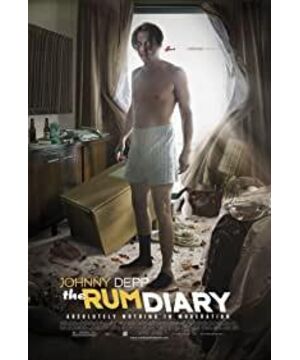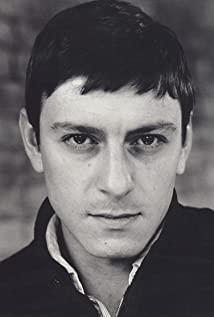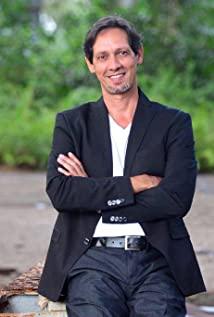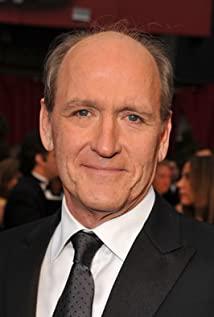"Lime Diary"/The Rum Diary American writer Hunter S. Thompson was a novel written in the 1960s, but was not published until 1998. This autobiographical novel tells the story of a journalist and freelance writer named Paul Kemp from New York who came to San Juan, Puerto Rico to work for a local newspaper in a recession. However, the newspaper soon closed its doors. Camp also experienced various ups and downs in his life in the following days.
The novel was adapted into a movie in 2011 by Infinitum Nihil, a film production company under the name of Thompson's friend Johnny Depp, and became the first work produced by the company since its establishment in 204. The film not only depicts an image of the United States in the 1960s, but also reveals American society’s reflection on the Cold War in the 1990s, and is mixed with anxiety about the racial conflicts that still exist in today’s global society and the growing xenophobia. .
Although the protagonist played by Johnny Depp is alcoholic and perverse, justice still exists. And when he just joined the newspaper, he discovered that he and the editor-in-chief Lotterman (Richard Jenkins) had a different understanding of media responsibilities. He believes that the duty of a reporter is to let readers know the truth; Rutman warned him that the media is to tell consumers, especially advertisers, what they want. In Lutman's business philosophy, the survival of the media depends on advertising, so articles published in newspapers must meet one purpose, which is to make those who spend money happy.
Afterwards, Camp met Sanderson (Aaron Eckhart) who was panning for gold in the local area, and fell in love with Sanderson's girlfriend Chenault (Amber Heard). During the contact with Sanderson, Kemp was given a lot of money on the condition that he wrote an article touting an island development project in which Sanderson was involved. This project is to build an American-style private club hotel on a small island. Let the wealthy Americans who come to vacation enjoy the beauty of the Caribbean Sea without being disturbed by the locals. To put it bluntly, it is to privatize a public island belonging to the locals and transform it into a territory that only the privileged class can enter and enjoy. According to what Camp saw and heard on Sanderson’s private beach, he knew that the project was unpopular locally. Because many local residents were ruthlessly driven out of the land where they lived by this so-called "private territory" reason. This has also contributed to the intensification of ethnic conflicts. Although Camp was swayed by the temptation of money. But in the end, because Chenault was raped by the locals venting their anger, he began to reflect on what Americans did there and the social estrangement it caused. He recognized the hypocrisy of politicians, businesses and the media, he saw the social class contradictions behind the racial conflicts, and he also began to question the US foreign expansion policy under various guise.
Such a subject matter has a warning effect whether it is the 1960s when the story occurred, the 90s when the novel was published, or the 21st century when the movie was released. The United States and the Soviet Union in the 1960s were in the cold war period. The two countries are fighting to make themselves the world's number one power. Financial aid, overseas market expansion, space competition, and even mutual support for local wars, etc., are all to protect their country’s global interests. The popularity of hippie culture can be said to be an expression of dissatisfaction among young people at the time. A large number of young people appealed for dissatisfaction with the high pressure of society through alcoholism, sex parties, rock music, and fancy dress. In the eyes of the widows at the time, their behavior was anti-social and morally depraved. And it is the same group of people who support and respond to various human rights movements and express their desire for freedom, which has also begun to prompt the people to reflect on national policies.
Also in the 1990s, the United States began to dominate the world. Although the Cold War is over, the Cold War mentality still exists in the ideology of the country. Like the Vietnam War, the United States launched a war against Iraq under the banner of protecting Kuwait, and sent troops to the former Yugoslavia under the slogan of peacekeeping. Although the United Nations General Assembly has urged the United States to end its embargo against Cuba every year since 1992, it still has its own way. Trade protection, economic sanctions, military intervention... As a result, anti-American sentiment is on the rise in the world, especially in the Middle East. Looking back at today, the occurrence of 9.11 is unfortunate for many Americans. It has united the American people like never before. But it also promoted the rise of American nationalism, and allowed politicians to find an excellent excuse to intervene in the affairs of other countries and profit from anti-terrorism. Thus, we see the United States today.
What's interesting is that Camp, the protagonist in movies and novels, gets drunk all day long and uses cocaine to numb himself from time to time. But it was such a seemingly confused person who didn't do a lot of test scores, and began to use his typewriter to think about the words and deeds of American society and overseas Americans. Johnny Depp should be said to be the best candidate for Camp's actor. Not only because he is the owner of the film and a friend of Thompson, but also because of his maverick star shape. Whether it is his Edward Scissorhands or Pirates of the Caribbean, Johnny Depp's star image is always associated with slutty marginal figures. He seems to be born with a temperament that is incompatible with mainstream society. But it is this temperament that allows him to ridicule and ridicule certain so-called mainstream social values. Perhaps, Camp’s role is not as impressive as Johnny Depp’s top-down image in Fear and Loathing in Las Vegas (1998), but he is also under the influence of alcohol. Started to examine the world around him. Maybe sometimes, people who are drunk are more likely to approach the truth.
Note: "Fear and Loathing in Las Vegas" (1998) is also a film adapted from Thompson's novel. The prototype of Raoul Duke played by Johnny Depp in the film is Thompson himself.
View more about The Rum Diary reviews











